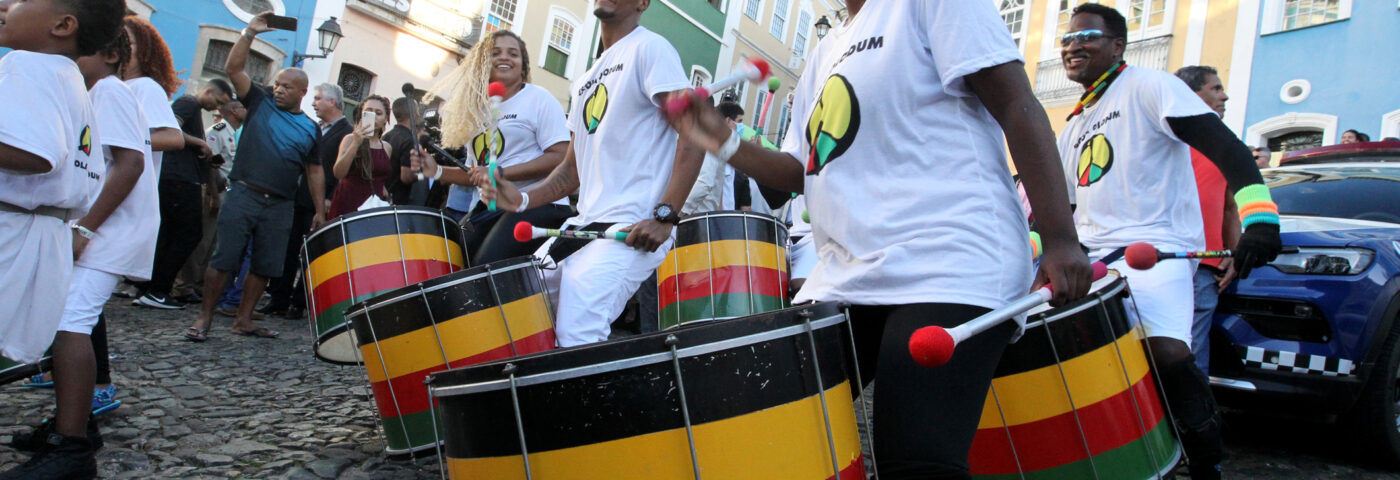Sector Sparks Urgent Debates, Expanding Since 2018 with Room for Growth
By Guilherme Soares Dias
“Challenges for Valuing African Heritage in Brazil” was the topic of the 2024 ENEM, the main exam for entry into Brazilian universities. An urgent and important subject that has gained space in social discussions, it is also the essence of afrotourism, a travel segment focused on Black history and culture. This concept is already a reality in Brazil, representing a new trend in tourism and creating opportunities for greater diversity in the sector and new business ventures.
The presence of Black-led companies and the emergence of new Afrocentric travel itineraries have influenced not only tour operators but also industry events, government policies (encouraged to develop new public initiatives), and sparked tourists’ desire for experiences more connected to their own stories—stories not traditionally taught in schools, depicted in media, or represented in mainstream tourism.
It is safe to say that the solidification of afrotourism has broadened the landscape of events, terminology, and the diversity debate in an industry that has historically been predominantly white.
While a collective of entrepreneurs and guides discusses forming a Brazilian Association of Afrotourism, Embratur, which promotes Brazil as a destination abroad, is actively encouraging and prioritizing the promotion of destinations tied to Black culture and history in its external events.
Policies
The 2024-2027 National Tourism Plan (PNT), launched by the Ministry of Tourism this year, includes afrotourism as one of the key trends. The Ministry of Racial Equality (MIR) is also taking action with its “Rotas Negras” initiative, which aims to foster tourism centered on Afro-Brazilian culture. This program will be structured through initiatives that promote tourism routes focused on Black history, deemed essential by the organization for combating racism in the country.
Meanwhile, the Ministry of Human Rights is implementing the “Signaling and Recognition of Sites of African Enslaved Memory in Brazil” project, aiming to mark 100 sites across 16 federal units with plaques to highlight the history of African heritage in Brazil.
These federal policies are mirrored in states like São Paulo, which launched an afrotourism guide, and cities such as Salvador, which ran the “Salvador Capital Afro” initiative. São Luís has inaugurated a monument to the African diaspora, installed plaques highlighting sites of Black culture and history, and hosts sector-specific events while promoting itself as a destination.
Companies
In the private sector, it is notable that there has been an increased demand for destinations linked to Black culture and history, along with the growth of companies in this space since 2018. Black Brazilians represent 56% of the population and account for approximately R$1.7 trillion in annual consumption—making them, alone, the equivalent of the 17th largest consumer market in the world.
Moreover, afrotourism can and should be embraced by people of all backgrounds, presenting a business expansion opportunity for companies that offer diverse experiences. Those not yet investing are missing out on revenue and market share.
Tourism industry stakeholders increasingly understand that Brazil must present itself as a destination beyond its sun, sea, and natural landscapes and recognize that discussing Brazilian culture inherently means discussing Black culture. This is the unique advantage that makes Brazil a rich, vibrant, and singular country. All roads lead to afrotourism—a path back to our roots and a vision for the future, much like the African symbol of the Sankofa bird. Thus, we move forward, never forgetting our past.
Guilherme Soares Dias is a journalist, founder of Guia Negro, diversity consultant, and traveler.


